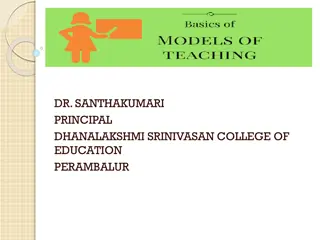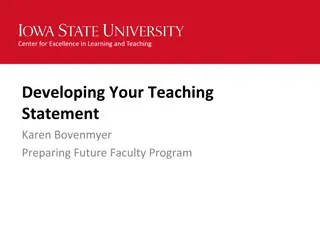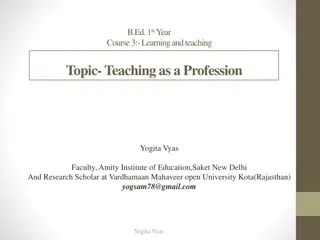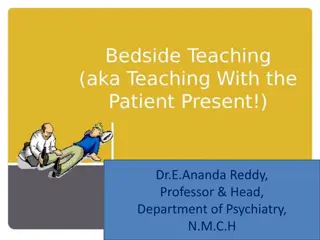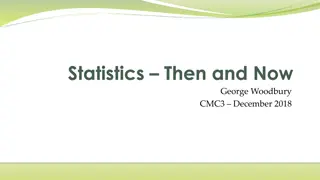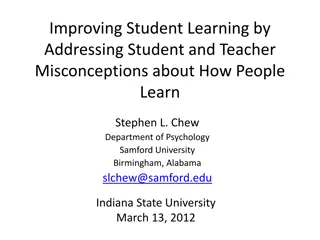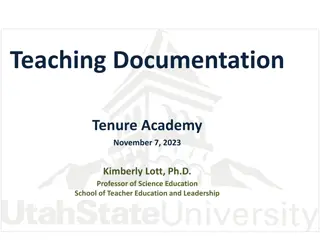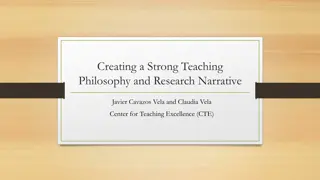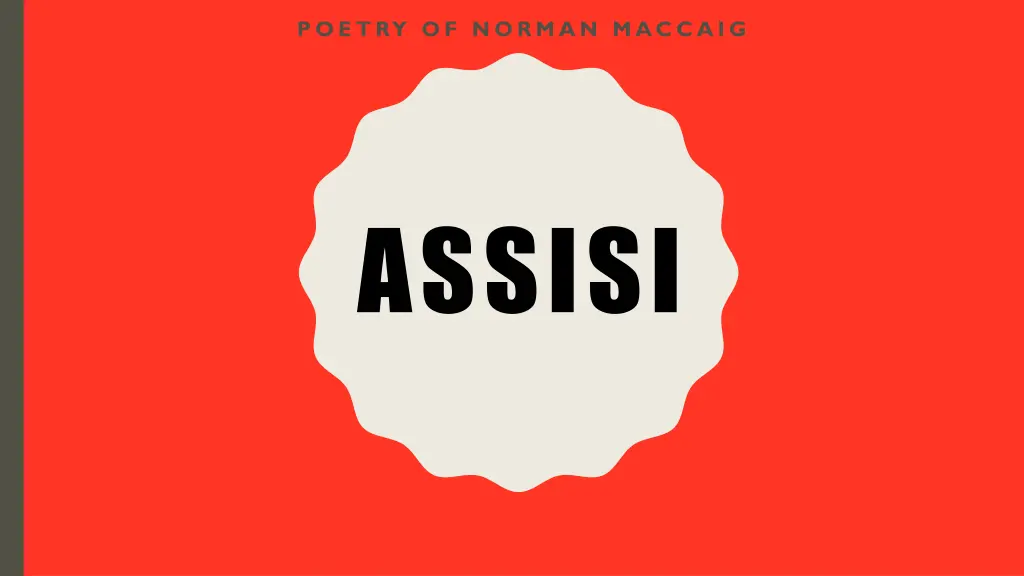
Encounter at Assisi: Reflections on Hypocrisy
Explore Norman MacCaig's poetic encounter outside the Basilica of St. Francis of Assisi, delving into themes of church hypocrisy and societal neglect through vivid descriptions of the beggar, priest, and tourists. Reflect on the poet's critique of human nature and the indifference towards the suffering of the marginalized in this thought-provoking piece.
Download Presentation

Please find below an Image/Link to download the presentation.
The content on the website is provided AS IS for your information and personal use only. It may not be sold, licensed, or shared on other websites without obtaining consent from the author. If you encounter any issues during the download, it is possible that the publisher has removed the file from their server.
You are allowed to download the files provided on this website for personal or commercial use, subject to the condition that they are used lawfully. All files are the property of their respective owners.
The content on the website is provided AS IS for your information and personal use only. It may not be sold, licensed, or shared on other websites without obtaining consent from the author.
E N D
Presentation Transcript
POETRY OF NORMAN MACCAIG ASSISI
Before Reading - Context Assisi is a town in the centre of Italy. There are many historical towns and the landscape is beautiful here so it is popular with tourists. ?
Before Reading - Context Assisi is most famous for being the home of St. Francis of Assisi. He was born here in 1181.
Before Reading - Context Saint Francis was born to a rich family but chose to live a life in poverty. He chose to help the poor and needy. He is the patron saint of animals, so he is usually pictured surrounded by animals.
Poets Main Idea This poem is an encounter MacCaig has with a beggar outside the Basilica of St. Francis of Assisi This is a famous landmark build to commemorate the life of St. Francis of Assisi a saint famous for his compassion and kindness to the poor. MacCaig is angry and frustrated at the hypocrisy of the church; they ignore a beggar while celebrating the life of St Francis, a man who would have cared for him.
Reflective Nature of the Poem In the interview A Metaphorical Way of Seeing Things , MacCaig maintained that poetry clears your eyes and you see things . MacCaig reflects throughout the poem on the hypocrisy of the church and his angry and bitter tone is apparent throughout the poem.
Theme Attack on the hypocrisy of the church and, in turn, human nature. We judge people by how they look and do not care for those outside of society in the way that we should. He also focusses on the suffering of the beggar and the fact that the tourists (and society in general) ignore this suffering in order to live their lives.
Structure Stanza One Description of the dwarf Stanza Two Focus on the priest and the church Stanza Three Focus on the tourists and ends with another description of the beggar
Stanza One The dwarf with his hands on backwards sat, slumped like a half-filled sack on tiny twisted legs from which sawdust might run, outside the three tiers of churches built in honour of St Francis, brother of the poor, talker with birds, over whom he had the advantage of not being dead yet. Think about: - What happens in this stanza? Is there a point where the stanza changes focus? - What is your impression of the beggar? - What mood or emotion is the poet feeling?
Focus of stanza one Derogatory comment at start of poem Beggar is twisted and deformed. Outwardly ugly this is why people judge him Stanza One The dwarf with his hands on backwards sat, slumped like a half-filled sack on tiny twisted legs from which sawdust might run, outside the three tiers of churches built in honour of St Francis, brother of the poor, talker with birds, over whom he had the advantage of not being dead yet. Simile Shapeless and unattractive Shell of a human being Unable to stand on his legs. Cannot support himself just as he receives no support from the church Makes the church sound grand and impressive contrasting against the dwarf, making it clear they could help Word Choice Beggar is outside church but also society, rejected Description of what St Francis kindness, creates contrast to way beggar is being treated now The only advantage that the beggar has is that he is alive, making it clear that he has no positive aspects in his miserable life Suggestion that the beggar may soon be dead. Creates more sympathy
Stanza Two A priest explained how clever it was of Giotto to make his frescoes tell stories that would reveal to the illiterate the goodness of God and the suffering of His Son. I understood the explanation and the cleverness. Think about: - What is your impression of the priest? - What is the priest doing? What would you expect a priest to be doing? - What is the priest s opinion of the people he is talking to? - What mood or emotion is the poet feeling?
Showing off his cleverness, rather the word of God giving a tour, rather than acting like a priest should Admiring the artwork and intelligence of an artist, rather than the word of God Stanza Two Once again shows someone who was concerned with helping the less fortunate contrasting with the priest and the church who are not helping the drwarf A priest explained how clever it was of Giotto to make his frescoes tell stories that would reveal to the illiterate the goodness of God and the suffering of His Son. I understood the explanation and the cleverness Disparaging Tone looking down on people he should be helping Reminds the reader of what the priest should be focussing on. Critical of making the church commercial and the patronising nature of the priest Ambiguous, could be referring to: - The cleverness of Giotto - Or the cleverness of the priest at commercialising church
Stanza Three A rush of tourists, clucking contentedly, fluttered after him as he scattered the grain of the Word. It was they who had passed the ruined temple outside, whose eyes wept pus, whose back was higher than his head, whose lopsided mouth said Grazie in a voice as sweet as a child's when she speaks to her mother or a bird's when it spoke to St Francis. Think about: - What is your impression of the tourists? - What is the tourists impression of the beggar? - What is the poet s opinion of the beggar?
Shows numbers and speed of tourists only there to see the sights, no one is there to help Extended metaphor comparing the tourists to chickens, makes them seem mindless and easily manipulated by the priest s attempts to take advantage of them Stanza Three The priest is paying attention to the tourists and not the beggar. St Francis would have wanted would have wanted him to pay attention to the beggar more hypocricy. A rush of tourists, clucking contentedly, fluttered after him as he scattered the grain of the Word. It was they who had passed the ruined temple outside, whose eyes wept pus, whose back was higher than his head, whose lopsided mouth said Grazie in a voice as sweet as a child's when she speaks to her mother or a bird's when it spoke to St Francis. The spirit of St Francis lies within the beggar. Concludes by re-empahasising important of message of St Francis Shows MacCaig sees himself as separate and different from the other tourists Word choice shows they have ignored the beggar and the message of St Francis of Assisi Repetition of outside again shows beggar is outside of society and ignored by the church Contrast filled metaphor to describe the beggar ruined refers to his ugly exterior, but temple implies he is just as beautiful and important as the church Simile shows beggar s inner beauty he is as innocent and as beautiful as a child
An Overview of the Stanzas Poem of contrasts Stanza One Starts with description of beggar and moves on to reveal the message of St Francis. Reveals the suffering of the beggar Stanza Two Starts with description of the priests and moves on to show his anger at the hypocrisy of the church Stanza Three Starts with description of the tourists and their unthinking approach to the church and beggar. Shows the inner beauty of the beggar and the importance of the true message of St Francis.
Revision Tasks To help you remember the key points of the poem you should: Write a summary of the poem showing how the poet moves from experience to reflection. Identify a key quote for each of the following points: The poet highlights the suffering of the beggar The poet reveals his anger and frustration at the priest The tourists mindlessly follow the priest The inner beauty of the beggar Write down and analyse any images used
Practice Question 1 Look at stanza 1. With reference to two examples of the poet s language, explain how MacCaig makes the beggar s appearance clear to us (4)
Practice Question 2 Look at stanza 2. With reference to one example of the poet s language, show the negative impression we are given of the priest. (2)
Practice Question 3 Look at stanza 3. With reference to two examples of the poet s language, explain how MacCaig makes it clear that the beggar is internally beautiful. (4)




